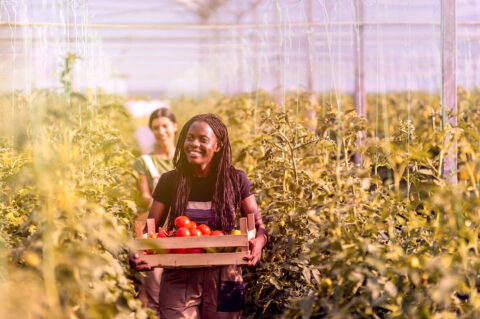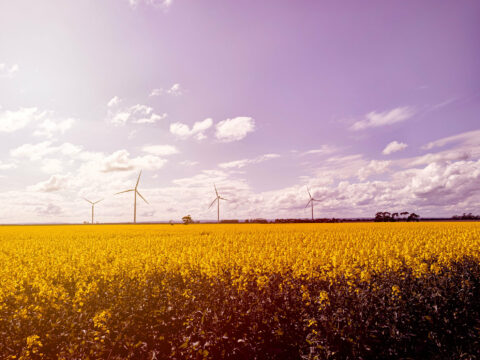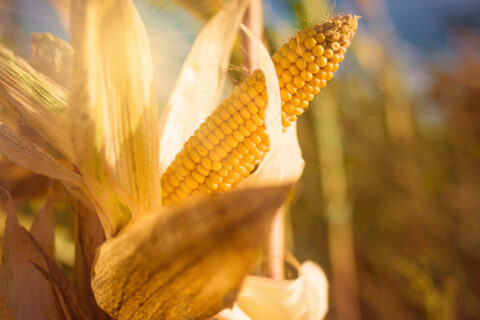Sunday Times Agriculture PR
Dedication And Passion Fuel A Resilient SA Agri Sector
Author: Roux Wildenboer, Absa CIB
Year on year, agricultural exports were 3% higher in 2022, illustrating the resilience of the sector in a year which our farmers had to contend with electricity blackouts, port delays and international shipping disruptions.
While we as a bank are natural optimists and remain confident that South African farmers will have the grit to overcome challenges as they arise, we do need to be on the lookout for some key structural issues that we think will test the resilience of the agricultural sector.
Without being addressed, these are unfortunately the sort of challenges that could result in the demise of some businesses if not managed properly.
Firstly, we are seeing a decline in capital investment among our client base and with good reason. It is difficult for any energy dependent business to consider expansion when there is no guarantee of reliable electricity supply.
Furthermore, farmers and the food value chain could have absorbed a certain level of power cuts but are increasingly stressed with the increasing severity of loadshedding. Even the most resilient businesses have suffered as a result, and unfortunately many farmers are not financially able to “make the switch” to solar.
It is not only amongst primary producers that we are seeing stress. The energy crisis is also costing the entire food value chain billions. Pick ‘n Pay and Shoprite recently released financial results which showed they were spending hundreds of millions of Rands annually on diesel to remain operational during loadshedding. These costs will inadvertently contribute to inflating food prices. Data out of StatsSA1 showed food prices increased across the board and while the reasons for the inflated food prices are not all due to electricity problems, additional energy costs and disruptions will only worsen the situation.
Market diversification has become a critical requirement for our clients in the fruit export business. The EU has long been one of our most important markets for high value fruit exports. Unfortunately, trade barriers continue to be upheld – most notably in terms of phytosanitary measures which we believe aren’t always as scientifically sound as it’s made out to be. The costs of doing business in the EU will increase beyond the capability of many producers and exporters which makes the establishment of new markets imperative. With the EU market not growing, we must turn our focus to opportunities in countries such as Saudi Arabia, India, China, Malaysia and the rest of the African continent which is now our biggest export market.
The state of general infrastructure in SA is another challenge. Road, freight and rail infrastructure decay are well documented and the state of the Fresh Produce Markets are also becoming a concern. These markets, together with the infrastructure that surrounds them, are very important for price discovery and delivery into the informal food chain – which we consider an important aspect of food security in the country. If SA is to remain food secure and internationally competitive, it needs to be emphasised continuously that these services must improve. It is not only in the interests of being internationally competitive with our exports, but also crucial to avoid unnecessary costs in the staple food chain on which most of our population depends on to survive.
Absa remains very positive towards the agricultural sector in SA and the African continent. The sector remains a competitive and a strategic asset for the SA economy particularly. The degree of science and technology our farmers have learnt to apply in the quest to improve is impressive and with helpful policy interventions this is something to be leveraged into the future.
There are opportunities to capitalise on beef exports – if we can improve our disease control functions. Between 30-40% of SA’s cattle herd operates in the “informal” economy. If we can be successful in starting to commercialise this asset, vast benefits can accrue to small scale cattle farmers. However, this will require cooperation and buy-in from stakeholders across the value chain.
It is our view that South Africa has the best farmers in the world, and although the journey is often challenging, we echo the words of Nelson Mandela when he said:” Everyone can rise above their circumstances and achieve success if they are dedicated to and passionate about what they do.”
If there’s something we at Absa are certain about, it’s that the South African Agri sector has a passion and dedication to succeed and we look forward to supporting our farmers in 2023.





